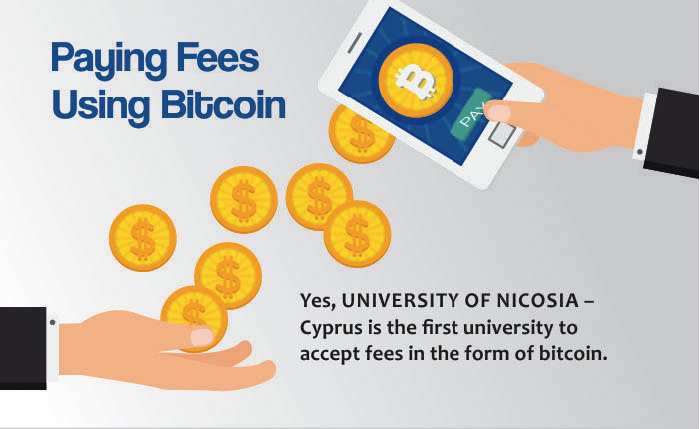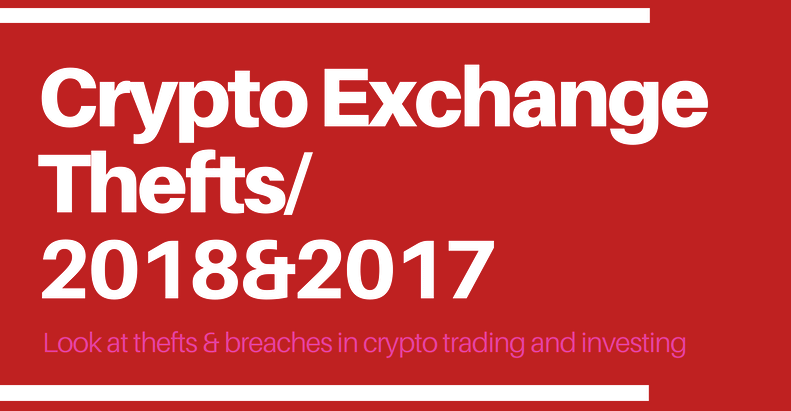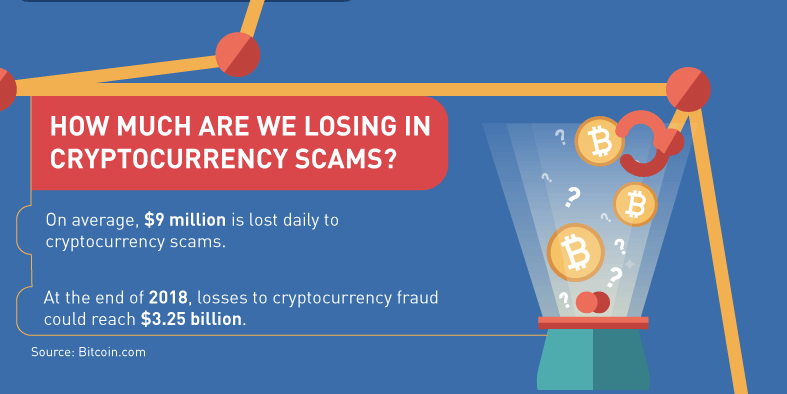You are reading about: "Michael Foster of LocalCryptos: Venezuela could be start of something bigger"
We sat down with Michael Foster, one of the co-founders of LocalCryptos (formerly LocalEthereum), to chat about crypto P2P trading in 2018, challenges of the business and his opinions on blockchain and state.

“The boom forced us to learn how to keep up, the bear market reminded us to stay frugal and remain strategic and careful.”
According to the stats from dAppRadar, daily active users on LocalCryptos have been falling through 2018 but the daily traded volumes have been steadily increasing. That means the trade has been growing, even though the number of participants has decreased.
It looks very optimistic for a year of bear market, was it the result of a targeted marketing strategy?
We definitely had to get creative with our marketing.
These days you need to think outside the box when you want to advertise in the cryptocurrency space. You’re not allowed to advertise on mainstream platforms - not only Google but also Facebook, Twitter and even Reddit.
At first, we would place our ads on niche cryptocurrency websites, but the costs of this kind of advertising skyrocketed in early 2018. There was a lot of money in the blockchain industry still from the 2017 token sale boom.
Essentially, we ended up competing for ad slots with projects that had hundreds millions of dollars in ICO money. Instead of trying to outbid them, we decided to focus on encouraging word of mouth.
That means stellar customer service?
That’s only one part of the problem. With a clunky platform you won’t create positive customer experiences no matter how excellent the customer service is.
Our strategy is to design the platform as user-friendly as possible, and on top of that we are always there to help people if they get stuck.
As a co-founder, I probably talk to thirty-plus customers each day on Telegram, sometimes late at night.
We listen and we iterate; traders who have been around since the beginning will notice the platform looks very different today compared to when we launched.
I think this proactive approach encouraged word of mouth a lot.
People often underestimate how much a small team can achieve, even without overwhelming funding. But still, you launched in October 2017 right into the peak of the cryptocurrency bubble. How did you handle the first months after launch?
There was a lot that couldn’t be predicted. The market was a roller coaster as usual, and LocalCryptos volume generally follows the overall market.
In the early months of 2018, we had a huge influx of signups from a mainstream audience. Our platform had only just launched then, and we weren’t ready for the overwhelming demand.
We spent hours each day brainstorming ways to simplify the user interface, and to rephrase our user guides so that laymen would understand them.
At the time, LocalCryptos was only two people.
Customer support itself became just too much to handle. At the height of the 2018 boom, I would routinely wake up to one-hundred-plus new support tickets.
Eventually we had to hire some help for our customer support desk. There weren’t enough hours in the day for us to handle customer support on top of development and everything else.
So as your user base gradually changed in 2018 along with the changes on the market, did you also notice a geographical shift?
When we launched, we had no expectations for the countries in top positions.
In terms of trade activity, Venezuela is our top country.
In terms of trading volumes, China and Russia are leading, but we have users in almost every country in the world. Other popular countries are the U.S., the U.K., Spain, New Zealand and India.
If you asked me in 2017, I wouldn’t have guessed that Venezuela would be our number one country. I might have said it would be in our top ten, but I wouldn’t have guessed it would be number one.
Many people argue the notorious interest in cryptocurrencies in Venezuela doesn’t matter. It is not a rich country after all, the amount of money a Venezuelan can bring to the cryptocurrency markets is quite small.
I don’t think the interest in crypto from Venezuela doesn’t matter. I think it could be the start of something bigger.
Seeing the growing number of LocalCryptos users from there brought me back to why I found interest in Bitcoin in 2010: Cryptocurrency has the potential to rapidly accelerate economic freedom.
Freedom is necessary for societies to progress - that’s a fact that many leaders sadly don’t understand, particularly in countries like Venezuela, Argentina, Iran and Cuba.
In my opinion, Venezuela is the most important country for developers and crypto-evangelists to focus on, and I think it could become a great example for the rest of the world once it is “flipped” to a blockchain-based economy.
That’s not an exaggeration, in my opinion the flip is totally possible.
I’m excited about cryptocurrency lifting oppressed people out of depressed economies. If I can help by providing tools people use to prosper without the state, even better.
On LocalCryptos we’ve done a lot to accommodate the demand from Latin America. The website is now available in Spanish, we opened a new Spanish telegram group, and we hired community staff in Venezuela. I’ve been learning Spanish as well, but I’m not very good.
If the flip to blockchain-based economy were to happen, peer-to-peer marketplaces would probably play an important role in it - this type of activity can initiate changes in the bottom-up direction.
Quite in general, what do you think are the biggest bottlenecks for people who are getting into P2P trading?
The biggest obstacle to P2P trading is getting your head around the whole process, especially if you’re coming from exchange trading.
One thing is your personal security and responsibility for your cryptocurrency holdings. Centralized exchanges hold your crypto for you at all times, but LocalEthereum is a non-custodial marketplace.
Second thing is trading without order books. Trading exchanges have bids and asks lined up in centralized order books and matched automatically with a matching algorithm. On a P2P platform, users need to manually choose a person to trade with. That concept is very new and strange to some people.
Then there are also the scammers. How do you deal with abuse of the platform?
Yeah, scammers can be tricky to deal with, but I think their presence is sometimes overstated.
User reputation is a really useful tool here. At the end of each trade, users are asked to rate each other. If a user’s feedback score is very low or if they get reported, they’ll be booted from the platform.
Most types of scams can be prevented with better guides and education. Once you are aware of the scam, you know what to watch out for.
For example, the most common scam is to convince the seller to send ETH outside of escrow. The scammer will put their Ethereum address in a chat message and convince the other party to transfer ETH directly to them, before they vanish with the funds.
We’ve mostly solved this by having a loud warning message pop up whenever a user posts an Ethereum address via a chat message.
Another very common scam is for the buyer to send a fake transfer receipt and trick the seller into releasing the escrow early.
We’re now working on an improved user-interface that will clearly explain the escrow process to new users because it’s usually people brand new to cryptocurrency who are prey to scams like this. We’re also going to publish video guides later in the year.
How about more advanced abuse, like the free option scam?
You are referring to people using P2P markets as free options contracts especially during volatile times, which is a more complex maneuver.
I don’t know if it can be technically called a scam because both parties receive what they agreed upon in the end, however it can be a problem.
It does lock up the seller’s funds in the escrow, so they are potentially losing money they could otherwise use in an actual trade.
Yeah. How this works is that a buyer will lock in a trade at some rate, and then stay silent for an hour or so. If the market moves up in that period, they’ll complete the trade because they can sell the ETH immediately for a profit; if the market moves down, they’ll cancel the trade.
This kind of behaviour is tricky to detect or prevent from our side, however it can definitely be improved with better guides and education.
As a trader, you can minimize the impact of this by limiting the trade size for users you have never traded with before.
In general, if you are a P2P trader, these risks should be reflected in your pricing rather than regulated by the platform.
Read more about LocalCryptos and similar blockchain tech companies in our business directory, or visit the platform at localcryptos.com.
More & Better:
Email alerts (2-3 a week)
- Opinions, Analyses & Interviews
- Industry News Releases
- Blockchain Tech Intelligence
Data is beautiful
Blockchain Technology in Mobile App Market: State of the Industry 2020
Blockchain is currently at the top among the new trending technologies that came up in recent years. It is a remarkable innovation for our ever more digitalised world. Blockchain is mostly known as decentralized network,...
New Horizons in Fintech: Payments, Big Data and Partnerships [Infographic]
The global fintech market saw a period of consolidation in 2018, which is exactly what we saw also in terms of price evaluation of crypto assets. In spite of the “crypto winter”, which is apparently...
Brand development in forex and crypto: Most expensive domain names [Infographic]
Crypto infographics - Most expensive domain names in forex and crypto. Targeted brand development in forex and crypto with domain names.
Top 8 Women in Blockchain Tech [Infographic]
When it comes to women in crypto, the pre-2016 OG heads will probably come up with names like Alena Vranova and Blythe Masters. Alena Vranova is the former CEO of Satoshi Labs, the company that...
Infographic: Blockchain Technology, Ledgers, Blocks and the Role of Price
Blockchain technology 101: What is blockchain, what types of blockchains exist and what role does the cryptocurrency price play.
Infographic: The Good And The Bad Of ICOs
Infographic: The good and bad of ICOs - Which token sales raised the most money in 2018?
The Business of Esports: All The Numbers [Infographic]
Esports is a rapidly emerging category as a real sport. It’s even beginning to compete with traditional sports.
Shocking Facts About Cryptocurrency Heists [Infographic]
If there is one question in the history of Bitcoin that cannot be answered with anything more than an estimate, it is the problem of how much of Bitcoin’s supply is actually ever available on...
Comparing Forex Market with Crypto Markets [Infographic]
One of the few metrics that cryptocurrency markets have in common with the forex markets in 2018 is the high percentage of total trades being located on few most popular markets.
East vs. West: Which One Sides More With Blockchain?
Digital cash schemes were the holy grail of the late 90s, but since the bitcoin blockchain was invented, suddenly nobody in the West cares.
Blockchain Consortium in Trade Finance: 6 Notable Networks [Infographic]
The success of trade finance blockchain implementations depends on how widely they are adopted. That's why we have seen businesses form consortia based on similar interests.
Real-world companies that accept crypto payments [Infographic]
Infographic - Graphic map of businesses that let customers pay in bitcoin.
Infographic: Blockchain Hacks & Crypto Trading Platform heists 2018 vs 2017
Blockchain infographic comparing the biggest crypto heists of 2018 and 2017. In 2017 the focus lied more on ICOs, smart contracts and wallet.
15 crypto kings that are making history with their engagement in the field of cryptocurrencies
Coining The Bucks With Cryptocurrencies Have you ever wondered how much masters of the cryptocurrencies are worth? Like the guy who founded Ethereum, or the one who started Ripple, for example. The answer, in short,...
Industry News Releases
LocalCryptos, the non-custodial p2p platform, added a crypto-to-crypto exchange feature
LocalCryptos, formerly known as LocalEthereum, is currently the most popular non-custodial p2p market for cryptocurrencies....
Read >>- Montenegro to embrace blockchain technology in efforts to join the EU
- The Global Hackaton (April, Los Angeles) comes with free tickets to Crypto Invest Summit
- Etheremon celebrating #ChineseNewYear2019 with a series of bounties (Ends 8:00 AM UTC on Feb 11th)
- Crypto Marble dApp Game: Monopoly on Blockchain
- The dApp gaming platform VX Network launched the official VX Wallet in Apple App Store and Google Play
- Etheremon's first Chinese New Year Campaign: Chance to recall two rare mons
Comments
Also by Diana
In what ways might cryptocurrencies soon get more accepted in the mainstream?
Released on August 10, 2022 04:06:28 PM by Diana Read >>



![New Horizons in Fintech: Payments, Big Data and Partnerships [Infographic]](http://images.ctfassets.net/xwo28v1qbyr0/68XlkJIBuzcl5dyeDgIJ9m/bb7ee7ff0f255d3841186d638be798a1/android-android-phone-apps-47261.jpg)
![Brand development in forex and crypto: Most expensive domain names [Infographic]](http://images.ctfassets.net/xwo28v1qbyr0/5rT40HsDIWEUg0iWc8G2AA/084d085e8f7f31da24940b66ea356328/photo-1516321497487-e288fb19713f.jpeg)
![Top 8 Women in Blockchain Tech [Infographic]](http://images.ctfassets.net/xwo28v1qbyr0/FL3j8Qh2guG0wUacsS8S4/b1043ca8ea66dbff6c3decacf89c8888/women-blockchain.jpeg)


![The Business of Esports: All The Numbers [Infographic]](http://images.ctfassets.net/xwo28v1qbyr0/2ccUoChrlV9yZ4DAVU9zbj/fda01df3d8701b0186d3d4b599948707/esports-rise.png)
![Shocking Facts About Cryptocurrency Heists [Infographic]](http://images.ctfassets.net/xwo28v1qbyr0/7MiXmbuHd0NfWqKKd9hl7f/009c666e06e37af9a5a3ae8c6b6cc41e/martin-reisch-199362-unsplash.jpg)
![Comparing Forex Market with Crypto Markets [Infographic]](http://images.ctfassets.net/xwo28v1qbyr0/1MjGSV93CkQeuyusw4mGWy/31d8dc16c8a41703c1cd94273820431c/forex-vs-crypto.jpeg)

![Blockchain Consortium in Trade Finance: 6 Notable Networks [Infographic]](http://images.ctfassets.net/xwo28v1qbyr0/5LjWNG4sg0G8skosc6yCUu/09ee40b6faa5362e3843a4d4ac9d54b9/pexels-photo-373912.jpeg)
![Real-world companies that accept crypto payments [Infographic]](http://images.ctfassets.net/xwo28v1qbyr0/5uN67wErhSaaiQmok0UAKo/2d18d249a49a4e921f21e0e1703ab9b1/who-accepts-bitcoin__1_.png)


![How Blockchain Disrupts Business [Infographic]](http://images.ctfassets.net/xwo28v1qbyr0/5itC9tgscgEWqCAkUO0Q8S/c44f6a4af9bf880956aa43a6d8b03ef8/16-blockchain-disruptions__1_.png)



